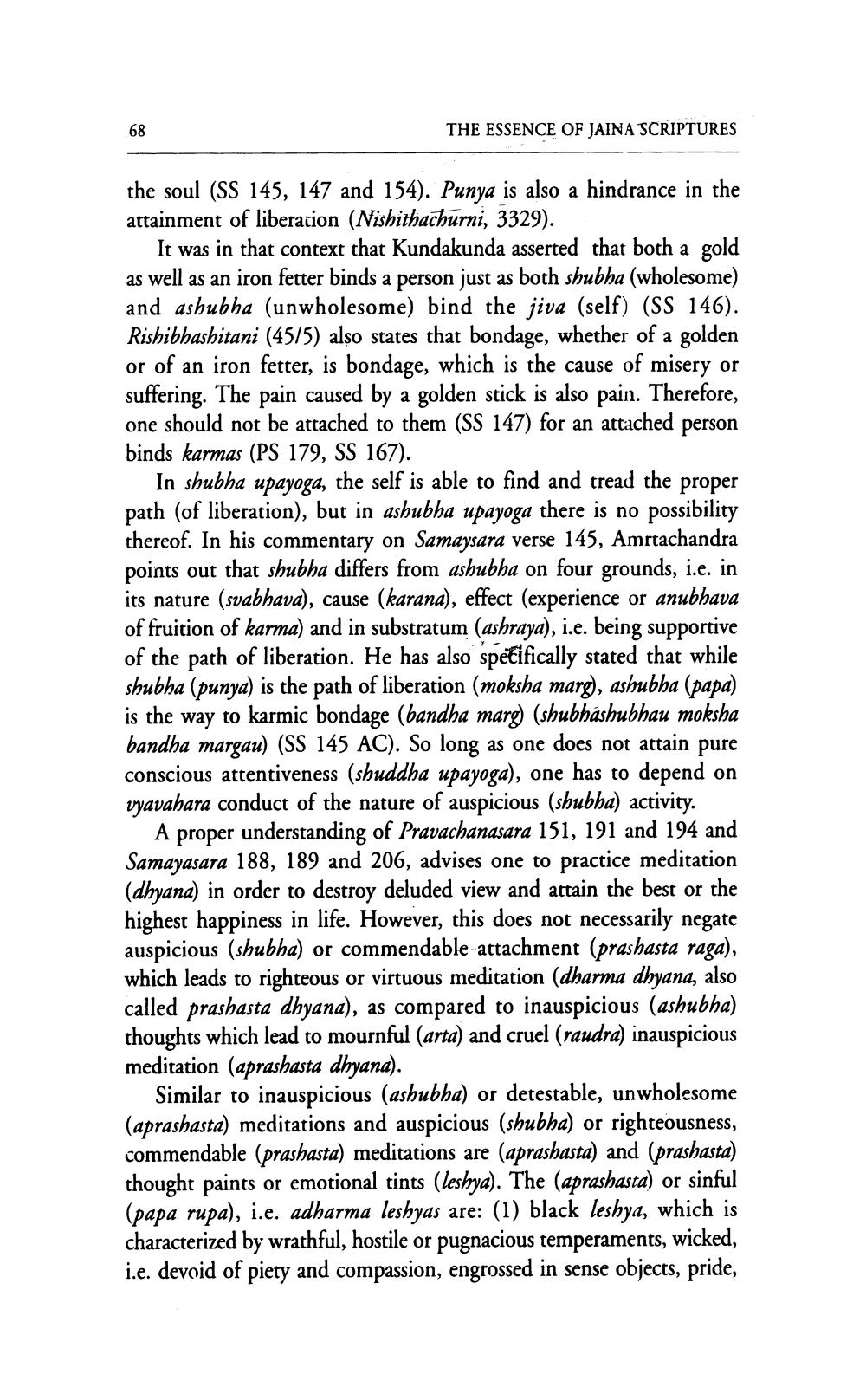________________
THE ESSENCE OF JAINA SCRIPTURES
the soul (SS 145, 147 and 154). Punya is also a hindrance in the attainment of liberation (Nishithachurni, 3329).
It was in that context that Kundakunda asserted that both a gold as well as an iron fetter binds a person just as both shubha (wholesome) and ashubha (unwholesome) bind the jiva (self) (SS 146). Rishibhashitani (4515) also states that bondage, whether of a golden or of an iron fetter, is bondage, which is the cause of misery or suffering. The pain caused by a golden stick is also pain. Therefore, one should not be attached to them (SS 147) for an attached person binds karmas (PS 179, SS 167).
In shubha upayoga, the self is able to find and tread the proper path (of liberation), but in ashubha upayoga there is no possibility thereof. In his commentary on Samaysara verse 145, Amrtachandra points out that shubha differs from ashubha on four grounds, i.e. in its nature (svabhava), cause (karana), effect (experience or anubhava of fruition of karma) and in substratum (ashraya), i.e. being supportive of the path of liberation. He has also specifically stated that while shubha (punya) is the path of liberation (moksha marg), ashubha (papa) is the way to karmic bondage (bandha marg) (shubháshubhau moksha bandha margau) (SS 145 AC). So long as one does not attain pure conscious attentiveness (shuddha upayoga), one has to depend on vyavahara conduct of the nature of auspicious (shubha) activity.
A proper understanding of Pravachanasara 151, 191 and 194 and Samayasara 188, 189 and 206, advises one to practice meditation (dhyana) in order to destroy deluded view and attain the best or the highest happiness in life. However, this does not necessarily negate auspicious (shubha) or commendable attachment (prashasta raga), which leads to righteous or virtuous meditation (dharma dhyana, also called prashasta dhyana), as compared to inauspicious (ashubha) thoughts which lead to mournful (arta) and cruel (raudra) inauspicious meditation (aprashasta dhyana).
Similar to inauspicious (ashubha) or detestable, unwholesome (aprashasta) meditations and auspicious (shubha) or righteousness, commendable (prashasta) meditations are (aprashasta) and (prashasta) thought paints or emotional tints (leshya). The (aprashasta) or sinful (papa rupa), i.e. adharma leshyas are: (1) black leshya, which is characterized by wrathful, hostile or pugnacious temperaments, wicked, i.e. devoid of piety and compassion, engrossed in sense objects, pride,




